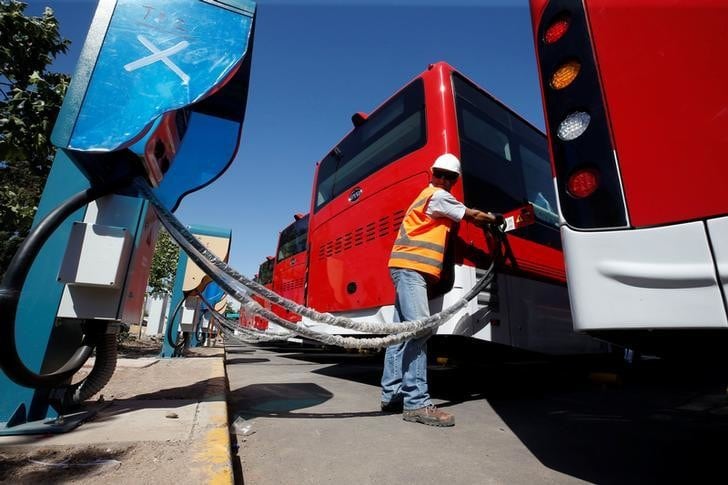
How a new framework for carbon emissions accounting can help decarbonize freight and logistics
Carbon markets can prove useful as part of a new accounting framework to accelerate the green transition of hard-to-decarbonize sectors such as freight.
Dr. Christoph Wolff is CEO, Smart Freight Centre, Amsterdam; an Honorary Professor Economics & Social Sciences at the University of Cologne; and Senior Fellow, UC Davis, International Transport Studies,
He was previously the Global Head of Mobility and Member of the Executive Committee at the World Economic Forum and oversaw the Forum’s work with Partners from the Automotive, Supply Chain, Aerospace and Aviation, Travel and Tourism sectors. He led the Forum’s System Initiative on Shaping the Future of Mobility which strives to achieve mobility of goods and people that is safe, clean and inclusive, and includes projects on the transition to Autonomous, Shared and Electric Mobility, Drones and Tomorrow’s Airspace and Security in Travel.
Prior to his role at the Forum, Christoph served as Managing Director of the European Climate Foundation, delivering policy solutions for EU and Member State Governments in decarbonizing the energy, transport, cities and energy-intensive industries.
Christoph is a Chemical Engineer by training with 17 years’ consulting experience from McKinsey & Co., where he was a Senior Partner and Global Practice Head in Travel and Logistics. He worked with airlines and airports on digitization, operations management, customer experience improvement, retail optimization and the optimization of mobile resources on airport aprons. He was Member of the Board of German Rail, DB Schenker, for four years leading International Railfreight and served Ferrostaal and ABB in executive positions in renewables.

Carbon markets can prove useful as part of a new accounting framework to accelerate the green transition of hard-to-decarbonize sectors such as freight.

Rail freight can achieve climate neutrality without the need for additional infrastructure and consumes six times less green energy than road transport.
As deliveries rise because of the pandemic, accelerating the use of robots could allow Japan to ease pressing problems, including an aging population.
Large-scale investment is needed to kickstart electric buses in India, transforming its transport system, reducing GHG emissions and improving air quality.
As aviation rebounds from COVID, sustainable fuel can have widespread environmental and economic benefits. Here's how and why India should scale up SAF.
The shipping industry must reach zero emissions by 2050, and to get there zero-emission ships must become the dominant and competitive choice by 2030.
Collaboration across the auto industry can transform emissions and further much needed circularity to create real systems change.
Transforming how cars are produced and used could cut carbon emissions by up to 75%. Here's how circularity can help.
The magnitude of the task will test global supply chains like never before and needs bold collective action from multinationals, governments and industries
Leaning into the shift to electric mobility and the circular economy could spark a revolution in how cars are made and used.
A new framework can ensure cross-border travel is safe and predictable and doesn't require excess disclosure of personal health information.
The dream of integrated transportation for cities is today within reach. A new report from the World Economic Forum and Deloitte outlines the challenges and choices involved









